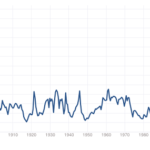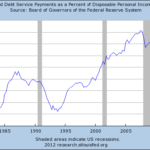With today’s downgrade of Greece’s credit rating into junk territory by Standard & Poor’s, ripples were felt globally, as equity indices tumbled from the latest multi-day rally. This weakening Euro trend has continued for some time now, but as a Greek debt resolution loses legitimacy and as shorts pounce, it’s unlikely there will be a sharp reversal in this trend. In essence, momentum may be building for a more pronounced slide as events continue to unfold and more Euro zone countries are subject to speculative betting.
How to Profit from the Greek Debacle
A few investment methods for investors looking to either hedge exposure to European holdings or just speculate on further deterioration are as follows:
Currency ETFs: The most obvious play on continued weakness in the Euro as Greece slides and Portugal, Spain and others follow, would be to go long the USD and Short the Euro which unfortunately can’t be achieved directly in a long position. You could, however, short the Euro/Dollar ETF (FXE) OR, you could buy a leveraged short Euro ETF (EUO). I cringe at novice investors holding leveraged ETFs since they lose value over time, but as a near term trade, those are your two most direct options. Over the prior 6 months, an investor shorting FXE would have made 11%. Meanwhile, a 6 month hold on EUO would have returned 23%.
Gold: Gold was one bright spot today, with the gold bullion ETF GLD rising 1.7% while broad US indices lost 2% on the day. Much to the dismay of people who try to rationalize why in this day and age people still flock to gold in times of panic, it’s a tried and true result. While governments can print more money and devalue their currency, there is a fixed volume of gold in the world and a relatively tight supply situation annually. Note that there are now several different gold investing options each with their own pros, cons and rather unique tax consequences retail investors should be wary of. For instance, (GLD) is taxed at a higher rate than typical capital gains because it is considered a collectible, but the aforementioned article shares some insight on how to mimic performance with a less severe tax consequence.
Long Emerging Markets: If looking for equities exposure with economies that are actually growing and aren’t saddled with debt to the same degree as the Euro zone and US, investors would be well served in pursuing emerging markets. There are various emerging markets investment methods which don’t require direct investment in individual stocks or ADRs. Investors concerned about a broad global decline could always consider pairs trades with long emerging markets/short Euro zone ETFs as well.
Disclosure: No position in any ETFs referenced in this article.











{ 0 comments… add one now }